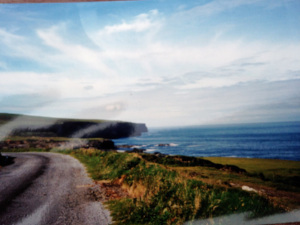Dermott Hayes's Blog: Postcard from a Pigeon, page 75
May 10, 2016
NO RULES
Happy birthday, today, May 10, 2016 to my daughter, Holly
My daughter, Holly, is 26, today. Tempus Fugit, when you’re having fun, I must add. Twenty two years ago, myself and my two daughters went on a road trip in a beat up old Mini. I wrote this poem, many years later, about that wonderful time, the three of us, in west Clare with NO RULES. My other daughter is Hannah.
There are no rules,
I told them,
just love yourselves
and respect all others
to be, to do, to say,
whoever they are
we pointed the Mini, west,
and hit the road where
we can only go forward,
because we couldn’t go back
to a shattered beginning,
to carry away the fragile output
of that relationship
On loan for a fortnight,
set loose in the west
with a sackful of sweets.
No plans, no rules,
a rudderless ship
in choppy waters,
ever onward.
Into a future
with bright…
View original post 79 more words


Bloom
For: Cee’s Fun Foto Challenge: Single Flowers or Bud
Gooood Morning (yawn), wow, what a beautiful day?


Clarence
Everyone knows a Clarence, an uncle, a stepfather, a priest, a friendly guy on the sideline, at the game. When I read LIFE RE-EDITED ‘s story, Survivor, it reminded of a short story I’d written about a child’s encounter with a predator.
One evening after football practice he was there, sitting in his big car. Clarence Nelson no less. Five feet tall in his stockings; two cushions higher in his big red Austin Cambridge taxi. His pink tinged complexion had a waxy shine to suit his impeccably Brylcreemed snow-white quiff. His beady blue eyes had a watery impudence that leered at the world from the shelter of his DSS horn rims. The window on the passenger side was rolled down and as they passed he spoke.
“That was a great wee game, boys, are yez gonna win a few medals this year?” he said in a Northern accent that would cut and butter bread. His eyes were mischievous and his smile was wide and toothy.
They ignored him.
“Can I give yez a lift home?” he asked, “who’d like a bounty bar?” The two boys exchanged looks and giggled. Damien grabbed the door handle and threw his Umbro kit bag inside. He held the door ajar for his best friend, Pearse. They both slid across the big Cambridge’s bench seat. There was a thick, green, woollen rug thrown across the seat. The interior smelt of sweet, cheap cologne, aniseed balls and mint.
Clarence, on his double cushion throne, beamed with delight.
He wore a navy blue pinstripe suit with wide, sharp lapels. The trousers were wide fitting too and had turn ups. His shoes were George Webb black leather lace ups, neat and shiny. He had tiny feet.
As he swung the big car around the street’s dead end turning circle he let out a high pitched yelp, “Yeeha!”, giggling and bouncing on his cushion, “ what ‘r’ yer names?.”
“I’m Pearse,” the bolder of the two said, helping himself to a couple of the Bounty bars from the bag he’d been handed. The smaller of the two friends: fair, wavey curls and swarthy skin, Pearse had an air of mischief and command about him that belied his compact frame and bashful manner.
By contrast, Damien, his best friend was tall and gangly, a lank black mop of greasy hair nested on a head and face with skin so pale his veins could be seen clear through it, his dark, round eyes followed his friend’s every move, “and he’s Damien. What’s yours?”
Pearse was entranced by the wild, magnetic eyes, framed by the heavy spectacle frames and all framed in the rear view mirror, staring at him and his friend.
“Clarence,” the funny little man said, “Clarence Nelson.”
The two lads looked at each other and giggled.
“Stop here,” they squealed together, less than a minute from the GAA pitch. “This is where we live,” they told him.
And it was true for they were neighbours and lived less than one hundred yards from the new church and school and the GAA pitch.
Clarence yanked the big car’s steering wheel gear stick into neutral as he pulled in beside Pearse’s daddy’s Cortina.
His Daddy was in the front garden attending to the lawn and some new flowerbeds he was planting. Francis Xavier McCarthy stood up as the car pulled in. He looked surprised when he recognised Pearse and his best buddy, Damien. A frown darkened his smile as he put down his trowel and walked towards them.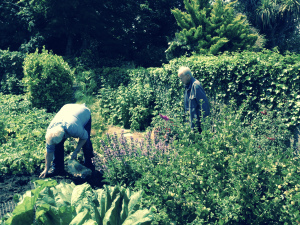
Clarence was out his door and around the front of the car before they could get the car’s rear door open. “You must be Pearse’s Daddy, he’s the spittin’ image of ye,” he declared, his open hand outstretched. Pearse’s father, a cautious man, took in the scene slowly, smiling bemusedly at the tiny dapper white haired man with the shiny pink skin and wide lapelled navy blue pin stripe suit.
“I am,” his Daddy answered, “where did you find the pair of them?”
“We were at training,” Pearse offered, “this is Clarence. He gave us a lift home.”
“Well, you didn’t have far to come,” his Daddy said.
Pleasantries were exchanged. Francis Xavier, as dour as his wife could be gregarious, picked up his trowel and weeding bag. Clarence patted the bonnet of his car as he skipped around to the driver’s seat. After adjusting himself on his cushions he waved a cheery ‘so long’, promising to see them soon. Then he left.
Pearse’s Daddy stared after him, frowning.
When the tea was over, the table was cleared by Pearse and his sister. Mrs McCarthy filled the sink with soapy water to wash the dishes that had been scraped clean of scraps for the cats and stacked beside the scullery sink. Pearse’s Daddy dried but never spoke.
He hadn’t spoken much at the table either, leaving the running to his wife and only coaxing her with the odd grunt or agreeing nod.
His silence was pervasive. When he went quiet the rest of the family grew still.
The dishes done, he hung up the drying cloth behind the scullery door, lifted the latch and disappeared into the back garden. They could hear the garden shed door open, a rattle of tools and he emerged with a fork and shovel. “Go out and help your Daddy dig the praties, son,” Pearse’s Mammy said.
Francis Xavier had retreated by now behind two drills of garden peas, lush and green with promising white flowers, to his pride and joy, his potato crop, nurtured in a warm blanket of the freshest horse manure to floury perfection.
“Will I get a bucket?” Pearse asked the crouching figure of his father as he lined the fork up beside a potato stalk and sank it skilfully with his right foot into the rich, black earth around and under the plant.
“Pearse, a stor, take the garden sieve down from the shed above and bring the bucket beside it too,” his father said without looking up.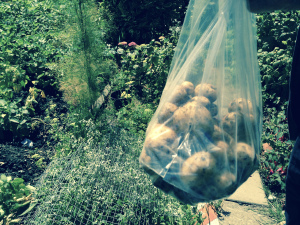
It was friendly enough, thought Pearse as he rooted around in the shed, “Pearse, a stor,” he’d said. But he knew the signs. Someone had a talking coming to them and he was standing in the garden carrying a bucket with a hole in it.
With a piece of cardboard stuffed on the bottom, the useless bucket became the potato bucket. Pearse’s job was to gather the potatoes in the sieve, shake off the excess clay back into the exposed soil and then gather them all in the bucket for later storage.
“Pearse, a stor,” Francis Xavier said again, “come here I want you, I want to have a sma’tle talk with you.” Pearse swept the unruly fringe of blond curls from his face with the back of his hand, leaving a smear of fresh soil across his brow, and stepped into the gutter of the potato drill.
Francis Xavier hunkered down until they were at eye level.
He fidgeted with a pocket knife and the stays holding up the flimsy sweet pea vines. “Have you ever heard of homo,..?” was all he could blurt in one gasp of blushing embarrassment before exploding in a coughing fit that brought him to his knees in the damp clay. His entire head, in its first flush was red and pink. Now purplish hues stood out against his prematurely grey head.
When he had gathered himself, producing a crumpled white cotton hanky from his trousers and hacking throatily into it, he hunkered up again and repeated his question.
“Have you ever heard of homosexuals or homos?”
“No,” Pearse replied honestly.
Francis Xavier appeared to sample this knowledge, rolled it around on his tongue a bit, his eyes never missing Pearse’s even when he moved himself. Then he made a decision and swallowed his son’s reply.
“Where and when did you first meet him?” he asked, in clear but unspoken reference to Clarence .
“Tonight. He was parked at the end of the pitch and he offered us a lift home,” Pearse said, “he didn’t know we only lived down the road.”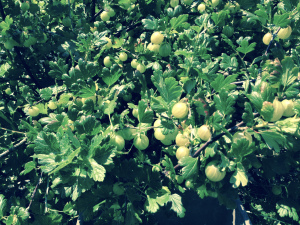
His father pursed his lips and shaded his eyes, the way he did when he examines an electricity bill. He leaned in towards the boy and looked him gently in the eye, “did he try to touch either of ye?”, he was fighting back the cough that had nearly choked him and you could see the colour rise again but he held it. “Did he touch…” their faces almost touched in among the potato drills and the sweet peas, “your privates?,” he whispered, gesturing, at the same time towards his willy.
Pearse didn’t know where to look.
“No,” he stamped, “no, he didn’t,” affronted at this slight on his ability to look after himself, “we’re not a pair of eedjits, y’know.”
“Sure, I know that, a mhic,” he reassured, “but what made ye get into the car with him in the first place?”
“He gave us some Bounty bars,” Pearse said, “and he was funny. And didn’t he give us a lift home?”
His father sighed and sank back onto his ankles. He looked at the penknife in his hand and closed the blade. He put the knife back in his pocket and looked, again at the boy standing before him, his youngest son .
He was smart beyond his years and, though small in frame, showed a stout heart and fighting spirit in sport. He was a leader and a thinker. But he’s just a lad, he thought.
“Look, a stor, I know you’re well able to handle yourself but I want you to promise me this, you won’t get back into Clarence’s car again. Not unless there’s an adult that I know with you. Will ye promise now?”
“I promise, Daddy,” Pearse said, relieved.
Some of the other boys had already met Clarence. After two more football practices and a box of chocolates delivered to Pearse’s mother – ‘no-one ever appreciates a good mother’, he had said to her at the door of the house one evening – he expanded his interest in the community.
Pearse’s mother was glad the boys hadn’t taken any more lifts from Clarence but although she accepted the chocolates with good grace, she never opened them. They were put away in the top shelf of a kitchen cupboard and never mentioned again.
Clarence discovered there were boys who liked to hang around the local shops and would appreciate a lift to the city, fifteen miles away, now and then. In those long, hot, summer days they swam in the pond, played football and baseball and hung about the shops. Going somewhere different meant hitchhiking fifteen miles to Limerick or catching a bus to the airport to cadge silver dollars from American tourists.
Most of the time they hung around wondering what to do next. They were a restless mob that summer. The Wetherby twins’ voices hadn’t broken simultaneously. Dave was a week ahead of Darren. Now he was ‘Deep Dave’ and his brother, ‘Squeaky Darren.’
Jimmy Spencer and Colin Devine liked to reach down their trousers and pull out pubic hairs. Then they’d compare them for length before parading them to the rest of their friends, shoving them in their faces as they sat in the summer sun on the grey brick wall in front of the local shops.
“Smell that,” they’d say. Unnecessarily, Pearse thought, the whiff of stale piss and sweat was a cruel taunt at the others’ lacking in this department.
Swimming in the marsh pools near the riverbank that summer became a nightmare for those whose progress through puberty had been slower than others.
They listened with disguised attention to the tones and tics of their voices and bodies, noting every nuance of change or alteration. Those with no pubic hair and rasher rind penises kept their towels on as they struggled in and out of their swimming togs.
Those in full sprout paraded their nakedness with pride.
Dressed, they stood around in giddy, nervous groups, hands deep in their trouser pockets, kneading their balls and penises as they willed something to happen that might soothe their adolescent irritation.
One day they met Clarence parked near the river. He was reading a grubby looking, well thumbed, paperback and his sombre visage cracked into a smile when he heard them approach.
“I nearly didn’t see yis,” he said, “where are the rest of the boys? Are they done with their shopping yet?.”
Damien and Pearse climbed into the back seat of the car, still redolent of cheap cologne, aniseed balls and mints. Clarence turned on his cushions, threw one arm over the back of the seat to steady himself, and beamed.
“You wanna read the stuff they put in these wee books, here,” he said, waving the book’s lurid cover of two scantily clad people in an intimate clinch, “ye’d want to be an acrobat to get up to some of the things they do.”
“Do you ever go to Cork or Dublin in your taxi?’ Pearse asked him.
“I don’t go to Dublin that often but I get a trip to Cork or the lakes of Killarney once or twice a week. The Yanks love their wee bit of luxury and them’s the boys can afford it,” he continued.
“Could I go with you sometime?” Pearse asked him. Clarence looked up in surprise and for a fleeting moment his jaunty demeanour escaped him. Then, just as quickly, the familiar glint returned. He tilted his head and examined Pearse over the rim of his spectacles.
“What d’ye want te go te Cork for?” he leered.
“I need a rucksack for the scout camp and I saw the one I want in the catalogue from Milletts,” Pearse replied, wondering, even as he said it, why he’d said it.
It was true he needed a rucksack. He found it in the Millet’s catalogue. His chosen rucksack had half a page to itself. It was made of thick, treated canvass and had a metal ‘A’ frame with a padded leather belt that helped redistribute the weight from your shoulders to your hips. It came in two colours, khaki green or gun metal grey.
There were tan leather straps to fasten the side pockets. The shoulder straps were made of thicker bands of leather and were padded with thick strips of fitted yellow felting. Even from the picture he could smell its newness and the polished musk of new leather.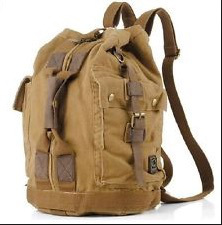
The scout troop was planning a weekend trip to the International Scout Jamboree the following month and Senior Patrol Leader Pearse, flushed with pride for his recent promotion, felt obliged to turn out as smart as he could.
Two weeks later Clarence called and left a message. He would be in Cork that weekend. They hadn’t spoken since that day when Pearse had shown him the Milletts’ catalogue picture. The bag cost twelve Guineas, far more than Pearse could ever hope to save in a year of paper rounds and oddjobs. He regretted ever mentioning it to Clarence. But he did want the bag.
He avoided Clarence that weekend, keeping away from his usual haunts like the shops or the playing field. Clarence had stopped his scouting activities abruptly and without explanation. On the Monday Clarence pulled up alongside him as he walked from school. He had been to Cork and bought the rucksack and if Pearse wished to take delivery he had to come and get it at Clarence’s hostel room near the airport.
Pearse was elated. His parents had banned him from contact with Clarence. But Pearse would not be deterred. With his father away he worked on his mother’s sympathy. She knew how much he wanted a rucksack and try as she might, she hadn’t persuaded Pearse’s father to buy him one. “He can save up and buy it himself or else wait ’til his birthday,” his father had said.
His birthday was a month away though and three weeks after the jamboree. He faced shame and unimaginable embarrassment he told his mother. Clarence, he told her, had bought the rucksack for his birthday but wanted to give it to him before the jamboree. “Your father forbid you to go near that man,” his mother announced and that was that.
That evening, as a BOAC training flight practised landings and takeoffs on a nearby runway, Clarence fixed himself a mug of tea and settled down to watch the news on his old black and white tv set. He had already packed his two suits and four shirts in their battered old suitcase which lay by the door of his tiny room beside the brown paper wrapped rucksack he had bought for young McCarthy.
It was time to move on. He had decided not to work a late shift even though a TWA flight from New York was expected. Earlier in the day he met the local sergeant who wondered why he stopped helping out at the boy scouts.
The knock on his door made him jump and scald his hand with hot tea. He straightened his tie and ran a hand through his greasy scalp as he leapt from his bed, folding the newspaper that was strewn on the bed and straightening the cover blanket. The room smelt of cheap cologne, hair oil and perspiration.
“Who’s that?” shouted Clarence.
“It’s me, Pearse,” came the reply, “I came up to see the rucksack.”
Clarence allowed himself a brief, sly triumphal grin as he bounded to the door. “Come on on in,” he was giggling as he pulled the door open into his grubby lair.
Pearse paused to savour his next words. He could see and smell and feel Clarence’s sweaty anticipation from the other side of the door in the grim, dank corridor. He could also smell his prize which lay beyond the door, its tan leather and khaki canvas beckoning him as in his mind’s eye he saw himself leading his troop to the jamboree, proud in the splendour of his own turnout.
“I told Mammy it was a birthday present,” Pearse explained as the door swung open. But Clarence wasn’t listening. He was staring over Pearse’s head into the eyes of Pearse’s mother.



Feeling old? Here’s 21 great reasons for you to enjoy being middle-aged
A former colleague from my days as a journalist, Dave Kenny writes sharp, humourous observations
Irish Examiner, May 8, 2016
“Dye your white hair. I don’t want people to think I have a middle aged son.”
That’s my mother talking. She is past the 70 mark.
“No,” I reply, firmly. “White is the new brown – except when it comes to bread. Brown bread is better for the bowels … as you get OLDER.” I thought the emphasis on OLDER might shut her up. It didn’t… and it didn’t silence the nagging voice in my head saying “she’s right, you’re middle aged… you’re middle aged…”
Webster’s dictionary defines middle age as being between 45ish and 65ish. I’m 49, so I’m over that threshold. I don’t feel middle aged, old or tired. I’ll be very happy to live another 50 years, even if it’s just to annoy everyone around me, demanding my bag be changed or my Zimmer frame be polished.
I am part of the…
View original post 2,267 more words


The Long Goodbye – New Yorker
Sample The Long Goodbye, Meghan O’Rourke’s memoir of grief and the loss of her mother, in the New Yorker: “Trying to let her go, I found that I was only hungry for more of her. A mother is a story with no beginning. That is what defines her.”


Survivor
Harrowing but uplifting story about courage and strength in the face of appalling and perverse abuse
I’m 9 years old.
My mom is at work for the afternoon and I just got home off the bus from school. He was sitting in the house when I got home and we started joking around and wrestling. Soon, he had his hand on me, in places that shouldn’t be touched by any man when you are 9 years old. I froze. I should have run to my mom the minute the door opened, but I didn’t really know what was wrong and what was right at the time, for Christ’s sake, I was only 9 years old.
When he heard my mom pulling up to the house he grabbed me and yanked me into a closet in my bedroom. He wrapped his hands tightly around my neck and told me that if I ever told anyone about what just happened, he’d kill me.
Imagine that, 9 years old…
View original post 1,741 more words


Camp closed: desperation on the Syrian border
Mohammed is leaning on his crutches at the fence of the clinic. “Can you help me? Please, please can you help me?” We go back with him to his tent. It is in a transit camp for Syrian refugees on the Turkish/Syrian border. And the refugees – about 3000 of them – have just been told they […]
via Camp closed: desperation on the Syrian border — Ali In The Field


May 9, 2016
Lanes and alleyways
Cee’s Odd Ball Photo Challenge: 2016 Week 19
I can’t pass an alleyway or lane without taking a picture. There’s so much fearful mystery attached



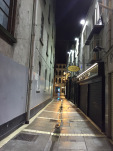
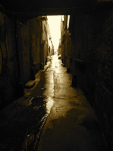


Taking Emilia
Weird as all hell, and hilarious, too
Her skin is flawless alabaster, smooth and cool to the touch. Her cheeks pale, expect for the slightest hint of pink flushing the apples beneath her clear crystalline eyes, which are generously framed by long, doe-like brown lashes. Honey coloured waves hug her perfectly proportioned shoulders and cascade down her back to her narrow waist. My fingertips softly brush some hair back from her collarbone, exposing the curve of her upturned breast, her nipple the palest shade of pink. A defined line runs between her breasts down to her navel, marking the place where her hips begin to swell into a pleasing figure 8. My eyes take in her flat stomach, smooth all the way to the tempting V where her thighs meet in a coy cross.
Emilia remains still, unblinking; the perfect woman… My perfect woman.
I have loved her since the first time I saw her as I…
View original post 383 more words


Daniel on the Verge
Anyone who has seen Marie Jones’s Women on the verge of HRT will understand the layers of ironic comedy with which, this play is layered.
Vera and Anna have made the trip to Donegal to see their singing idol Daniel O’Donnell. Vera has been abandoned by her husband and Anna is content to dream of Daniel whilst sustaining a loveless marriage. Singing waiter, Fergal, invites the women to join him at dawn. In a series of dream-like meetings the women confront their spouses and each other. Neil Martin’s country-style songs enhance this easily-staged, telling look at the spirit of women.http://www.samuelfrench-london.co.uk/p/11843/women-on-the-verge-of-hrt
These are ladies d’un certain age, the French put it, or, as playwright Marie Jones states, with much humour and not a hint of equivocation, on the verge of HRT (hormone replacement therapy). They are on a pilgrimage to view, worship and have tea with the object of their desire, Daniel O’Donnell, the kind of man, every Irish mammy, wants her daughter to bring home. In their dreams.
So, it was the last night of a sold-out, three week run for the play in Dublin’s Gaeity Theatre, a grand old relic of the music hall/theatre days, still intact. I’d been at the opening but the theatre director encouraged me to come along for the last night, too. She said it would be a really good show but offered no specific information.
Now, the opening night had been funny, as funny as Marie Jones’s plays always are. But, remembering that first night, I wasn’t sure I could face another night of ‘verging on the panic side of oestrogen’. The show was packed to the door of women of a certain age, the very object of the play’s drama. It was as though they’d taken a break from the endless Daniel O’Connell fan club circuit – they were like a middle aged, Irish female version of Grateful Dead fans – and hitched their wagons to Marie Jones and her insightful and hilarious production.
Ten minutes in the theatre for the play’s closing night and I knew I was in that same hormonal maelstrom; they cheered, they laughed, they raged, they swooned and I felt nervous.
Onstage, the singing waiter, Fergal, has changed from his daytime uniform of efficient, friendly waiter with a glint in his eye, to a spangly suited, country singer, eliciting swoons and sways for his moves and croons. He’s just about the break into song, to sing a song that’s especially significant for one of our heroine’s, who has her back turned to him, when Fergal gets a tap on the shoulder, he turns and yes, it’s Daniel, in the flesh.
‘Oh, Jesus, the fool’, I thought, ‘does he know what he’s about to unleash?’
Undaunted. Daniel’s there to make a guest appearance, for this audience of his most loyal fans at a play that takes an ironic swipe at them. Of course, his arrival onstage, sparks pandemonium. Forget Tom Jones, I’m thinking, Daniel is about to be smothered by an avalanche of shapewear and contour control briefs. The noise threatens to raise the roof, shiver the timbers and dismantle the building. It took me two minutes to hit the pavement. Nobody died, Daniel probably sold a couple of hundred Cds and a theatre full of women on the verge of HRT, went home, content.


Postcard from a Pigeon
- Dermott Hayes's profile
- 4 followers



